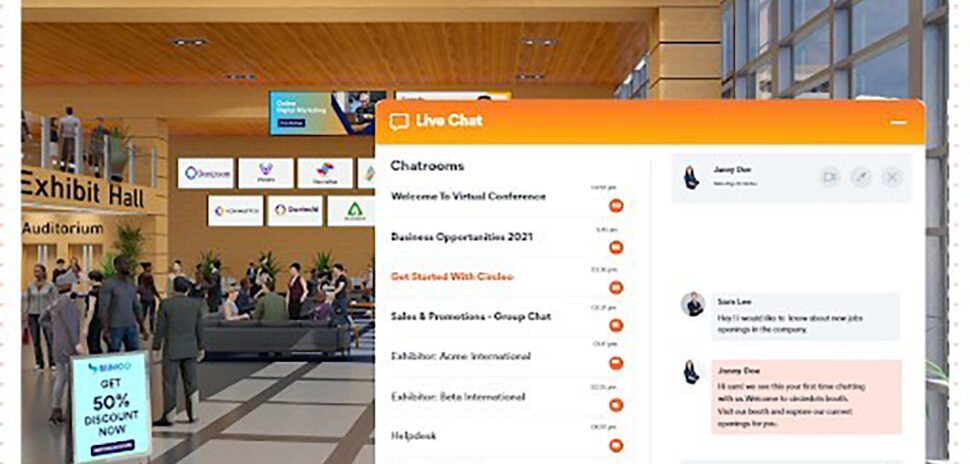Mass Luminosity is one step closer to the expected fall release of what it’s calling a revolutionary video and voice communication platform: Beacon.
Mass Luminosity—best known for its gaming social platform, GTribe—was founded in 2011 as a global research, development, and technology company. At the time, the company and its founder and CEO, Angel Munoz, wanted to seamlessly integrate people into augmented virtual environments.
Munoz himself has been in the the video game industry since 1995, which he joined after a career in investment banking. He also is known for spearheading the esports industry by launching the world’s first professional league for video gamers, according to Mass Luminosity.
Fast forward a few years from launching Mass Luminosity and he and his team expanded their vision to the defragmentation and enhancement of the human experience.
Thus Beacon was born. As a video and voice platform, Beacon aims to bring security, quality, and simplicity to video and voice communications. Ultimately, Mass Luminosity wanted to boost natural communication—and after years of software development, Munoz said Beacon was ready to usher in a new era of simple and feature-rich communications that could be used by the entire world.
Beacon is equipped with noise cancellation that reduces exterior sounds for an in-the-room experience and state-of-the-art encryption safeguards, like two-factor authentication, biometric, and hardware logins, that ensures confidentiality and identity protection.
There’s also the promise of fast and continuous connections, 3D audio, Ultra HD video, free unlimited call time, and a plethora of interactive tools. According to mass Luminosity, by focusing on users’ privacy, security and safety, it’s able to compete with big-name conferencing services and social media networks.
In January, the U.S. Patent and Trademark Office granted a patent to Mass Luminosity entitled Streaming and Non-Streaming Media Transfers Between Devices.
Per that news release, the patent enabled “the licensing of the world’s first video conferencing service integrating mid-call instantaneous switching across different devices.” In light of that patent, Mass Luminosity issued a license to Beacon Technologies, its wholly-owned subsidiary, for the use on Beacon.
“Through Beacon—and for the first time—a person participating in a videoconference will be able to seamlessly transfer it from a desktop computer to a smartphone or tablet PC with the touch of a button,” Munoz said. “Consumers are craving the seamless, live streaming transfer technology this patent enables us to deliver.”
Those videoconferencing capabilities gained major buzz in February when Munoz teamed up with Beacon Senior VP of Technology Teodor Atroshenko to develop the platform for Tesla vehicles. After almost a year of development, the duo successfully completed a video conference call in Munoz’s Model S.
Beacon used the car’s mics, speakers, and video panel, according to Teslarati. CEO Elon Musk tweeted last year that video conferencing could be a future feature, but there’s still no word on if Mass Luminosity and the EV maker have teamed up. Munoz said he’s open to it.
But, since Beacon is optimized for Chromium browsers (the same one used for Tesla browsers), owners will still be able to use Beacon in their vehicles when it launches, Munoz told the Teslarati.
Today, Munoz is moving forward with Beacon’s launch. Mass Luminosity announced this week that North Point Mergers & Acquisitions, an independent investment bank, was joining forces with Infralinx, a boutique infrastructure consultancy firm, to complete an ongoing private placement and raise additional capital for the Beacon platform.
Infralinx Chairman Richard Ornitz said his team is privileged to represent Mass Luminosity as the developer of Beacon. He even said Infralinx is already using the platform—”and it has materially enhanced our impact.”
From here, Mass Luminosity plans to pursue a family of patent applications for what it’s calling a groundbreaking technology. Recently, the team filed a continuation application around “augment features related to instantaneous switching between different devices.”
“Video and voice conferencing has been forced into accelerated growth, although existing platforms have a surprisingly blatant disregard for privacy and security and little concern for user experience,” Munoz said. “We created Beacon to bring the simplicity of a feature-rich communications platform to the world and to eliminate spying of private communication through advanced encryption and security for all voice and video calls.”
![]()
Get on the list.
Dallas Innovates, every day.
Sign up to keep your eye on what’s new and next in Dallas-Fort Worth, every day.




























